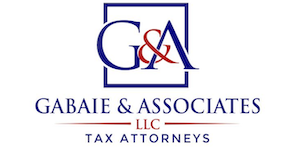What are the distinct roles of tax attorneys and CPAs during an audit?
Tax attorneys specialize in legal aspects of tax law and provide legal representation during audits. They offer advice on tax liabilities, negotiate with authorities, and represent clients in disputes and appeals. Their unique ability lies in protecting clients during IRS or state audits. CPAs, meanwhile, focus on preparing and reviewing tax returns, ensuring document substantiation, and providing financial advice. While CPAs are invaluable for return preparation, tax attorneys become crucial during audits due to their negotiation expertise.
What specific insights do tax attorneys bring to audit situations?
Tax attorneys anticipate potential legal issues arising from tax return line items. Their previous audit experience significantly benefits taxpayers during IRS or state audits. They possess specialized skills in dispute resolution, potential appeals, and tax court proceedings, which prove invaluable during the audit process.
What are the common pitfalls when CPAs handle audits without legal support?
The most significant pitfall is underestimating potential legal issues during audits. CPAs may unintentionally expose clients to greater liability without recognizing issues that could raise IRS concerns. Tax attorneys, drawing from their experience, understand what auditors look for and what documentation to provide.
How do tax attorneys help mitigate audit risks?
Tax attorneys identify high-risk areas, understand auditor objectives, and negotiate resolutions. Their knowledge of appeals and litigation processes often encourages the IRS to settle cases at the administrative level. When auditors see attorney involvement, they’re typically more inclined to resolve issues during the initial audit phase.
What proactive steps should be taken before an audit?
Conduct thorough reviews of financial documents, assess potential concerns, and ensure well-organized records. Organization is crucial as it demonstrates preparation to IRS or state auditors. Well-prepared and organized presentations often lead to more favorable audit outcomes, sometimes resulting in no-change letters.
How does the audit representation process work?
The process begins with attorney retention, followed by auditor contact and conference scheduling. Attorneys review necessary information and communicate with the IRS before in-person meetings. They assess the revenue agent’s focus and goals, then develop appropriate strategies. The process can progress through various stages: initial audit, appeals, notice of deficiency, tax court petition, and potential settlement negotiations.
What are common audit misconceptions?
Many taxpayers mistakenly believe an audit automatically indicates wrongdoing or guarantees severe penalties. However, audits don’t necessarily mean misconduct occurred. Many audits result in no changes or minimal liabilities. Professional representation helps understand auditor objectives and guides the process toward resolution.
What’s the importance of CPA-Tax Attorney partnerships?
Strong relationships between CPAs and tax attorneys benefit clients through efficient and effective representation. CPAs’ familiarity with client documentation, business operations, and bookkeeping complements tax attorneys’ legal expertise, creating a comprehensive defense strategy.
